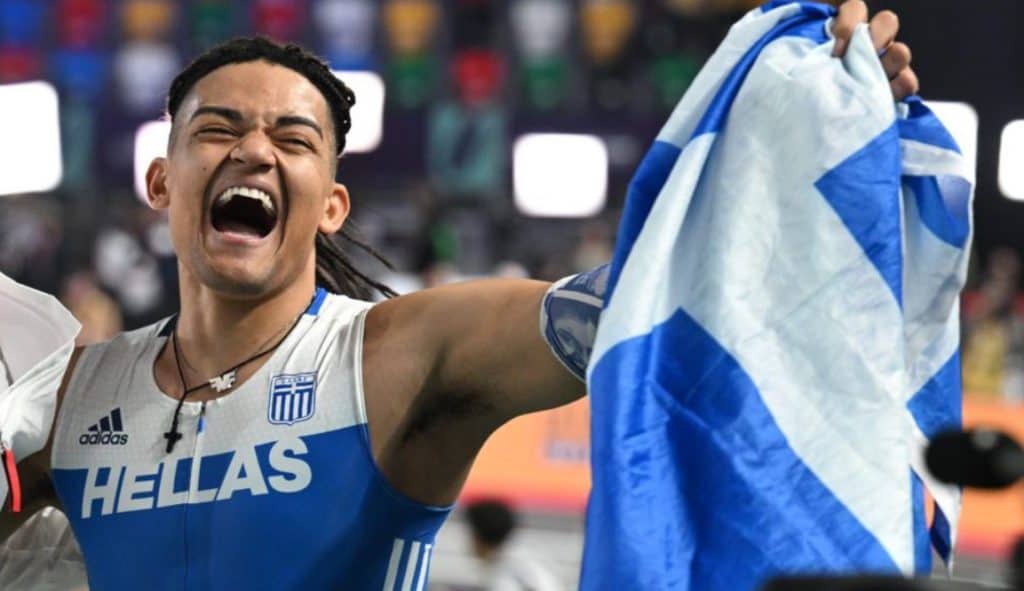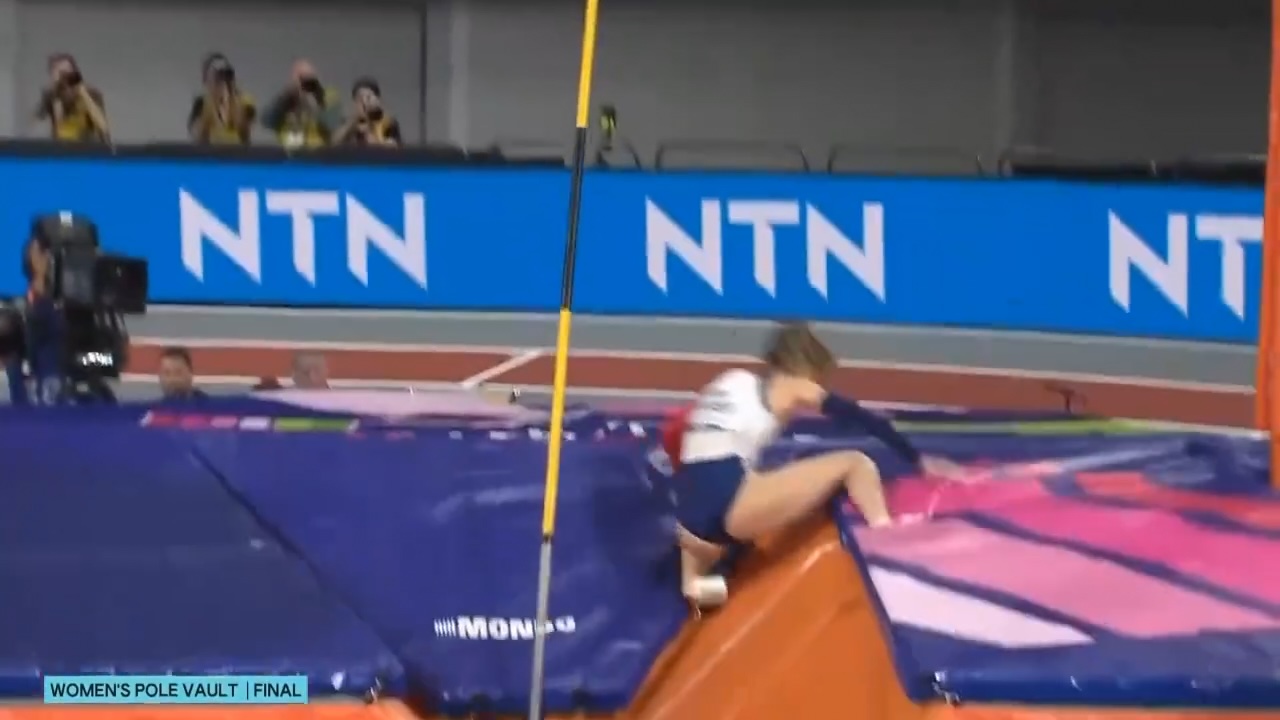M. Tentoglou does not like competing in the morning. But in Glasgow he did not have a choice, the men's long jump being scheduled for 10 a.m. Well, he did not disappoint, winning one more time, with a 8.22 m jump. M. Furlani confirmed his excellent shape finishing second also with 8.22 m (but with a 8.10 second best compared to Tentoglou's 8.19 m). C. McLeod was third with 8.19 m, a suspenseful event indeed. Ex-world champions T. Gayle and J. Wang could do no better than 6th and 9th with 7.89 and 7.74 m respectively.
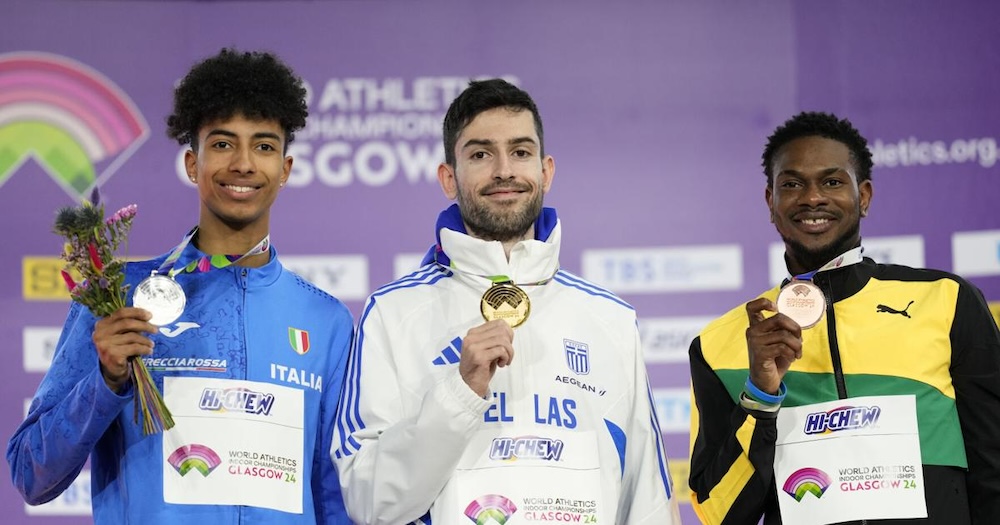
In the absence of the world champion, I. Vuleta, T. Davis-Woodhall was the number-one favourite. And she went on to win the event in a classy way with a 7.07 m jump, backed by another at 7.03 m. I really like her contagious enthusiasm. M. Nichols was second thanks to a jump at 6.85 m, that allowed her to take an early lead and turned out to suffice for silver. F. Diamé, coached by I. Pedroso, was third with 6.78 m. I was expecting something better from M. Gardasevich and L. Iapichino, who finished 6th and 7th with 6.74 and 6.69 m.

H.F. Zango added the indoor men's triple jump title to the one he won outdoors last summer. M. Triki took an early lead with 17.35 m and in the end won silver, but Zango was unbeatable and won with 17.53 m. T. Pereira was the only other athlete beyond 17 m, his 17.08 m sufficing for bronze. I have been following T. Lafond for some time now, being convinced of her great talent. She had barely missed out on a medal last summer. But this winter, and in the absence of Rojas, she went directly for gold in women's triple jump with 15.01 m. L. Perez-Hernandez jumped 14.90 m and added silver to the bronze she had won outdoors last summer. Olympic bronze medalist A. Peleteiro-Compaoré (another Pedroso athlete) was third, just like 6 years ago in Birmingham, with 14.75 m.

The high jump events were both somewhat surprising (but in a different way). K. Kerr won the men's event having first time clearances up to 2.31 m. S. McEwen and S. Woo had already difficulties at lower heights and, anyhow, could not go beyond 2.28 m. Kerr had an attempt at 2.34 and when McEwen exited definitely (he had left one attempt for 2.34 m) he raised the bar at 2.36 m. He failed on the first try but went on to succeed on the second, marking a world leading performance. In the women's Y. Mahuchikh took the lead at 1.97 m, where N. Olyslagers failed once. But when the bar was raised at 1.99 Mahuchikh failed thrice while Olyslagers succeeded in the third attempt. That was one more defeat for Mahuchikh and one more victory for the jumpers from the antipodes. L. Apostolovski was third with 1.95 m, for her first global medal. A. Topic was 5th with 1.92 m. Had she jumped 1.95 m she could have been in contention for a medal. Y. Levchenko was once more disappointing, finishing 9th with 1.84 m.

During a lapse of time everybody were wondering whether they were going to assist at the first major defeat of A. Duplantis in the men's pole vault. He had jumped 5.65 m and then failed twice at 5.85 m. Meanwhile S. Kendricks and E. Karalis had passed that bar on their first try. Well to make a long story short, Duplantis succeeded on his third try and went on to jump 5.95 m winning the event. Then having eliminated the inevitable stress, he went on to jump 6.05 m, a world-leading performance. E. Karalis added a world bronze to his european silver from last year.
Women's pole vault held both (a minor) surprise but also drama. M. Chevrier, while attempting a 4.65 m jump did not complete her attempt, had a bad fall and broke her ankle.
K. Stefanidi, ex world and olympic champion, could not advance beyond 4.55 just like european champion W. Murto. S. Morris went somewhat higher but her 4.65 m performance was not enough for a medal. K. Moon, the reigning world and olympic champion stopped at 4.75 m, beating A. Moser for bronze on counrback. Only M. Caudery and E. McCarthey could pass the 4.80 m bar, the former wining gold on countback.
The women's shot put was won by S. Mitton with 20.22 m but that was not an easy victory, Y. Onguleye having led with 20.19 m from the first attempt. R. Crouser was not threatened in the men's event that he won with 22.77 m. Only T. Walsh had a performance beyond 22 m, winning his 5th medal in a World Indoors championship.
The combined events are always one of the most exciting moments of any athletics championship. Unfortunately the women's event was deprived of a battle for the title when M. Vicente injured herself during the high jump. But as it turned out after the 4th event the classifiction was the following: S. Vanninen 3861 and N. Vidts 3852 points vying for first place. But also S. Dokter 3634, S. Gerevini 3624 and C. Hawkins 3619 points being candidate for bronze. Vidts had a clear superiority in the 800 m and Vanninen could only secure her silver. They finished with 4773 and 4677 points respectively. On the other hand, while Hawkins was not really competitive in the 800 m both Dokter and Gerevini had a chance for the bronze. Their battle over 800 m was really moving. In the end Dokter prevailed winning one more medal for the Netherlands.
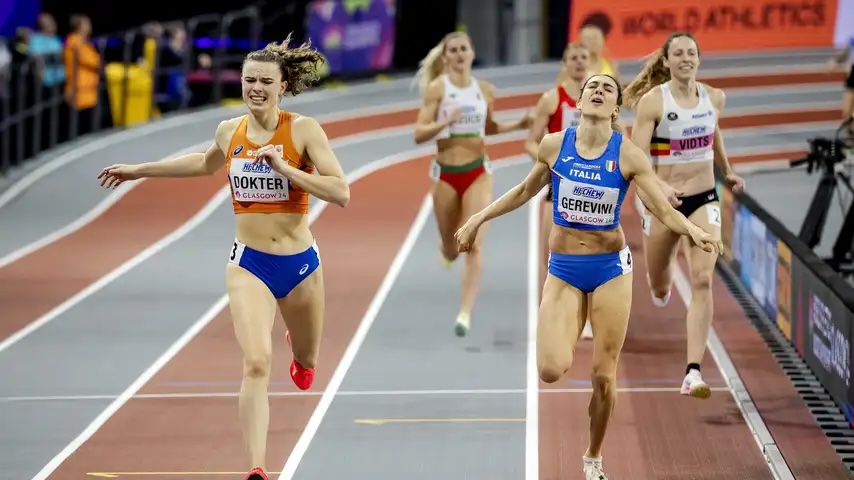
The situation in the men's heptathlon was equally interesting. After the 6th event S. Ehammer was leading with 5610 points, K. Mullings being second with 5470, S. Skotheim third with 5457 and J. Erm fourth with 5423 points. M. Rooth had had a rather disappointing competition (he had just 5361 points) and decided to drop out after the pole vault. Given his performance in the 1000 m, Mullings did not stand a chance. (In fact he had lost all hope for a medal when he could not jump beyond 4.60 at the polevault, while he has a 5+ m personal best). Skotheim and Erm were both much better than Ehammer in the 1000 m and they poured all their remaining energy into that last event. But in the end, while they passed easily Mullings, Ehammer did beat them with a very slim margin 6418 to 6407 points for Skotheim (and 6340 For Erm).
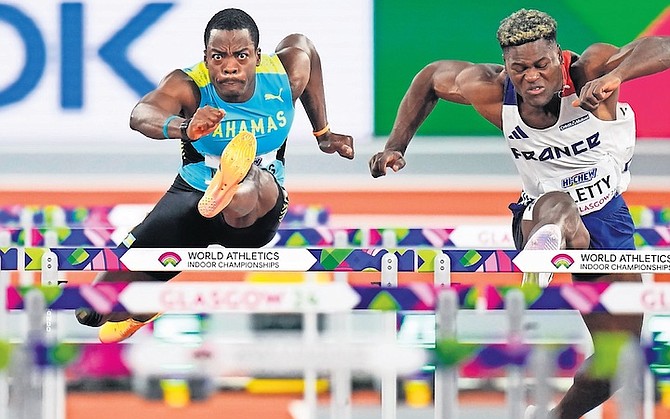
Mullings was fourth with 6242 points and M. Gletty fifth with 6187. I was somewhat disappointed by J. Hautekeete, a young athlete I am following, who finished 8th with 5940 points).
All in all that was a very nice championship. Now we have to wait for the Europeans in June.









